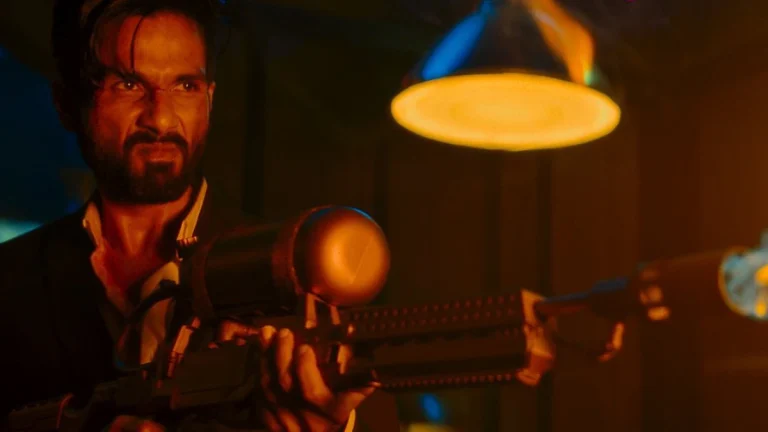In “Hysteria” (2025), director Mehmet Akif Büyükatalay uses the real-life racist burning down of an immigrant flat in Solingen to unleash a gamut of inquiries into divides between the white prototype and the Other. What are the anxieties, and the unease running in between? The director funnels them through a film being mounted on the incident, and the incident is re-staged in a scene.
“Hysteria” opens with the arson scene. A slick shift of perspective, from the footage to behind-the-scenes devising, sets things rolling. Elif (Devrim Lingnau), a fresh university graduate roped in as a second AD on the film, drives the viewer’s entry into the drama. What triggers the central plot is the paranoia stemming from a copy of the Quran getting burnt in the arson re-enactment. Said (Mehdi Maskar), an extra on the set, gets irate when he spots the torched copy in the footage. He’s furious and demands the director, Yigit (Serkan Kaya), show greater accountability for his artistic decisions. Chaos on the set further snowballs when Elif loses film footage.
Büyükatalay spins a narrative teeming with ambiguity and intrigue. No singular, ossified perspective is put at the forefront. The suspicion wavers from one person to the other, and the needle of blame keeps shifting. As much as you may try to pin it onto an individual, the film eludes the fixity of arrogation. There’s a remarkable reserve of scathing pointedness with which it takes aim at prejudice and the ways it manifests in supposedly free artistic expression. Artifice, insincerity, and untransparent purposes cloak the process of making you encounter in the film. What one may implicitly preach gets countered in a later presentation, their honesty slipping into deeply questionable endeavors.

But with some of the plotting, the design is too intently vague, obfuscated in the guise of complex motivations. What any person may have on their mind is firmly kept under wraps. The film resists interiority, letting you fill in the blanks. But certain umbrage can be taken with its curious genuflections, a denial of varied perspectives. To what end is its absence of clarity fruitful and weaponized? You can’t help but wish Büyükatalay offered a deepened curiosity into the beleaguered immigrants, upon whom scrutiny comes swift and unchecked.
A pivotal facet of this has to do with the positioning of one of the extras and aspiring filmmakers, Mustafa (Aziz Capkurt), in the narrative. He challenges the intent laid by Yiğit, the political slant of his film. In one fiery moment, he questions the point of planting a scene like the burning of the Quran. Does it really have any role beyond being scandalously provocative? Films like the one Yiğit is making are nothing but a vain, shallow effort of Europe to posturingly render its conscience unimpeachable, Mustafa rails.
Elif has no such qualms. She’s fine with how the film is shaping up. After all, Lilith, whom she deeply idolizes, is making it. Even after being tarred with insinuations, she’s only giddy with joy and gratitude at Lilith proposing her the position of a first AD. Nevertheless, the film’s focus stays insistently on the quick, partisan dispensation of blame. It doesn’t fully or cohesively stitch other perspectives, which it amply hints at, into place but it makes up for that ineffective, disquieting atmospheric buildup, best amped up by Marvin Miller’s score. It brings a pulsing dynamism, a disorienting edge to the proceedings, as Elif finds herself at sea, lost and struggling to make sense of inexplicable circumstances. When fingers are pointed at her, she’s like a deer caught in the headlights. The people she thinks she can trust ultimately reveal themselves as unreliable.
“Hysteria” works well as long as Elif’s voice registers. In her quickness to muffle her half-Turkish roots her wish to assimilate without conflict and trouble into the Eurocentric identity is immediate and apparent. Lilith and Yigit may try to bury the refugees’ voices, and their grievances as casually as they sling all blame on them, but it’s Elif who brings things to a final point of reckoning in the climax, a direct callback to the inciting incident. The result isn’t as satisfyingly well-etched as it thinks, but “Hysteria” displays enough daring and positional slipperiness to be consistently appealing.






![The Nothing Factory [2017]: ‘TIFF’ Review](https://79468c92.delivery.rocketcdn.me/wp-content/uploads/2017/09/highonfilms_nothingfactory_01-768x384.jpg)

